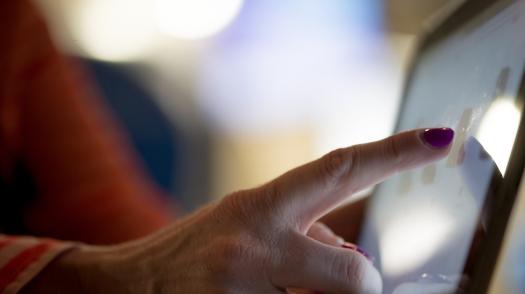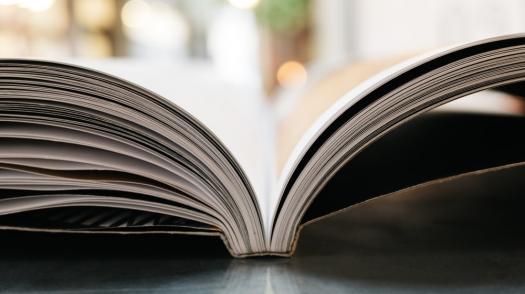The opportunity to get a child back to familiar surroundings can be a wonderful time for many families. But these first steps back to home life are rarely easy.
Parents and children may be used to having the support of healthcare professionals they have got to know.1 They may be trying to get access to services for their child, or adjusting to the changes in a child’s behaviour.2
Getting back home can be the start of a time of great change and adjustment.3 For families who’ve already been through the mill, it can feel like they’re now facing a new set of challenges.4
When Michael came back from the rehabilitation centre, it was like we half-expected someone to knock on the door and say: ‘We’re here to tell you what’s available and what you’re entitled to.’" Parent's experience
Let’s look back at some of the common difficulties experienced by children with an acquired brain injury (ABI):
- Fatigue5, 6
- Memory7
- Struggling with planning and processing information
- Physical difficulties8
- Difficulties with language and communication 9
Most of us have our own ways of doing things at home, but children with an ABI really need structure and routine. This isn’t always easy to provide when a family is trying to meet the needs of all of its members.
Working structure and routine into a child’s home life can be extremely helpful in allowing them to be as independent as possible.10 This might also help bring down stress and anxiety levels.
With the shock of the hospital still present in some cases, or the challenges associated with specialist rehabilitation in others, everyone is having to adjust; parents, siblings11 and the child who has been injured.
Some parents say they feel ‘out on a limb’3 when they get back home – they might not have the same level of support from the professionals around them. It may feel like they’re the only people in their situation.
Siblings are also having to make many changes, which may need a lot of thought and consideration from those around them.12 It’s after the return home that parents must deal with the often difficult process of looking for services to help them.
They may be looking into what the next steps are for schooling. In some situations, this can result in a great deal of stress for parents.
Some talk about a ‘fight’ to get what their child needs.13, 14
It’s a bit of an eye-opener when you realise there isn’t anything automatically in place for your child – you can’t take anything as a given." Parent's experience
There are a range of different services you may be entitled to, but navigating their way through can be hard for parents.15
We feel like we had to become different people, in many ways. We’re not the sort of people who’d want to push to the front of the queue, but we just had to be very demanding to get what we could for our child." Parent's experience
Some issues in moving back home
In purely practical terms, the move back home can be a shock to the system for families.
If their child has been at hospital or a rehabilitation centre, this may be the first chance parents have to come to terms with the impact of an acquired brain injury on their child. Children may need more help with their personal care (e.g. getting washed and dressed) than they did before their injury.8
Their behaviour might also be different and sometimes the move home can be a troubling reminder of how much things have changed.16 A parent may still be getting to grips with what behaviour is part of the injury and what may be down to other factors.
They may feel like they’re “off their own map” as a parent.17 Parents may have had to change their home around (moving a bedroom downstairs, for instance) so that their child can come home.
It’s when parents and children return home that they can feel at their most isolated. Friends and neighbours might rally round, but sometimes the ‘hidden’ nature of acquired brain injury may mean they don’t understand the issues.18
Despite all these difficulties, there are practical steps you can take, people you can talk to and things you can do as a family to try to overcome them.
The experts talk about the family as an “outcome moderator”. This is really just a clinical way of explaining what most of us already know – that a supportive and positive family environment can have a positive influence on a child’s progress.19
And this can extend to the wider circle of family and friends. What’s more, it’s thought that keeping a positive attitude about their circumstances can make a positive difference to a family.20, 21
Planning the return home
How the return home is worked out will depend on where the child is coming back from. But both hospitals and specialist treatment centres should have a discharge planning meeting.22 It’s important for parents to try to get the answer to any questions they have before they leave a hospital or a specialist centre.
These places are full of the people most likely to have the answers you’re looking for. Speaking with nurses, social workers and doctors can be a good preparation for the return home.
All parents want to get their children home as soon as possible, but if you have a discharge meeting, this is an opportunity to make absolutely certain you have the information you need.
The idea is that any issues are discussed and an effective plan for moving home can be put in place. After this meeting, there should be a plan of action to set out what kind of ongoing support your child needs and who will provide it.23
Parents should always be invited to these meetings, and some parents have found it helpful to invite others as a ‘second pair of ears’. Professionals won’t mind family members taking notes to keep a record of the meeting and what was discussed.
You can also request a set of meeting notes, which might be sent to you. Your doctor should also be notified about the discharge from hospital.
In some cases, you may want someone at your child’s school to come so they know their role in the scheme of things. The assessments and evaluations you may have seen taking place all contribute to this plan. Your child may have a 'named nurse' or 'key worker'– someone who has been with your child throughout the hospital. If so, it’s likely they will have also contributed to this plan.
The most important thing to remember is that this is an opportunity to make sure you are clear on everything. Whether they mean to or not, healthcare professionals get so used to jargon that they might not realise they’re using it. There is nothing to be embarrassed about in asking questions.
Referrals
The plan may have referred your child to some form of therapy service in the community. We talk about this kind of service below. Or the clinical team may have decided your child is well enough to continue without needing access to therapy services. There is nothing wrong in seeking a second opinion if you feel your child would benefit from these kind of services.
Parents may also be carers
In some cases, parents may become full-time carers to their children. On the surface, this might seem a natural transition to make, but it’s important everyone recognises that this is an important change of circumstances.24
One or more parents may choose to (or feel they must) give up work to take care of their child. They may reduce their working hours. This can result in great strain on family finances – just at a time when they may have to invest in changes to the home, transport and equipment.25
Becoming a carer to your child is, in some ways, a change of role. In fact, the way everyone in the family relates to one another can change a great deal following an acquired brain injury. It may seem that the whole family has been ‘shaken up’ like a snow globe and needs time to settle down.26, 27
A change of lifestyle is difficult for anybody and this kind of extra commitment can take its toll. Some parents talk about how they come to think of both themselves and their children as ‘different people’ after the child’s injury.24
Their lives have changed and parents may have had to adapt. But it’s important to note that some parents say they feel they have a stronger bond with their children after the injury.28
Strain on relationships
There may be strain on marriages or other relationships.29, 30 Once again, it is extremely important that parents make time to look after themselves on the return home.31 It’s also important to remember that you are not alone: it’s thought that one in eight adults are carers today.32
Short breaks and respite services
The pressures of any illness or condition can put strain on families. Your local authority and charitable organisations in your area may offer some form of short break or respite care.
Short breaks come in many different forms. They might be a chance for the family to get away together, or they may be a break for the child by themselves. Someone might take your child out for an activity one afternoon a week, or it may be more everyday care in the home.
To find out if your family is entitled to a short break or respite services contact your local authority who will be able to advise you on getting an assessment. Find your local authority here.
Support services
If you want to speak to an advisor about support services for parent carers look on the Carers Direct website. Support includes a web chat and a telephone helpline, 0300 123 1053, open from 9:00 to 20:00 Monday to Friday and 11:00 to 16:00 on weekends (closed on bank holidays).
For more information on carer's allowance and if you qualify look on the Contact website. Contact is a charity for families with disabled children.
There are many local support groups who can offer advice and a listening ear. Find your local council here and search for ‘support groups’ or ‘Support for carers’.
The NHS has information on benefits for carers, caring for a child with complex needs and young carers' rights.
Relate offers support and advice on relationships. Call 0300 100 1234 or visit their website here.


